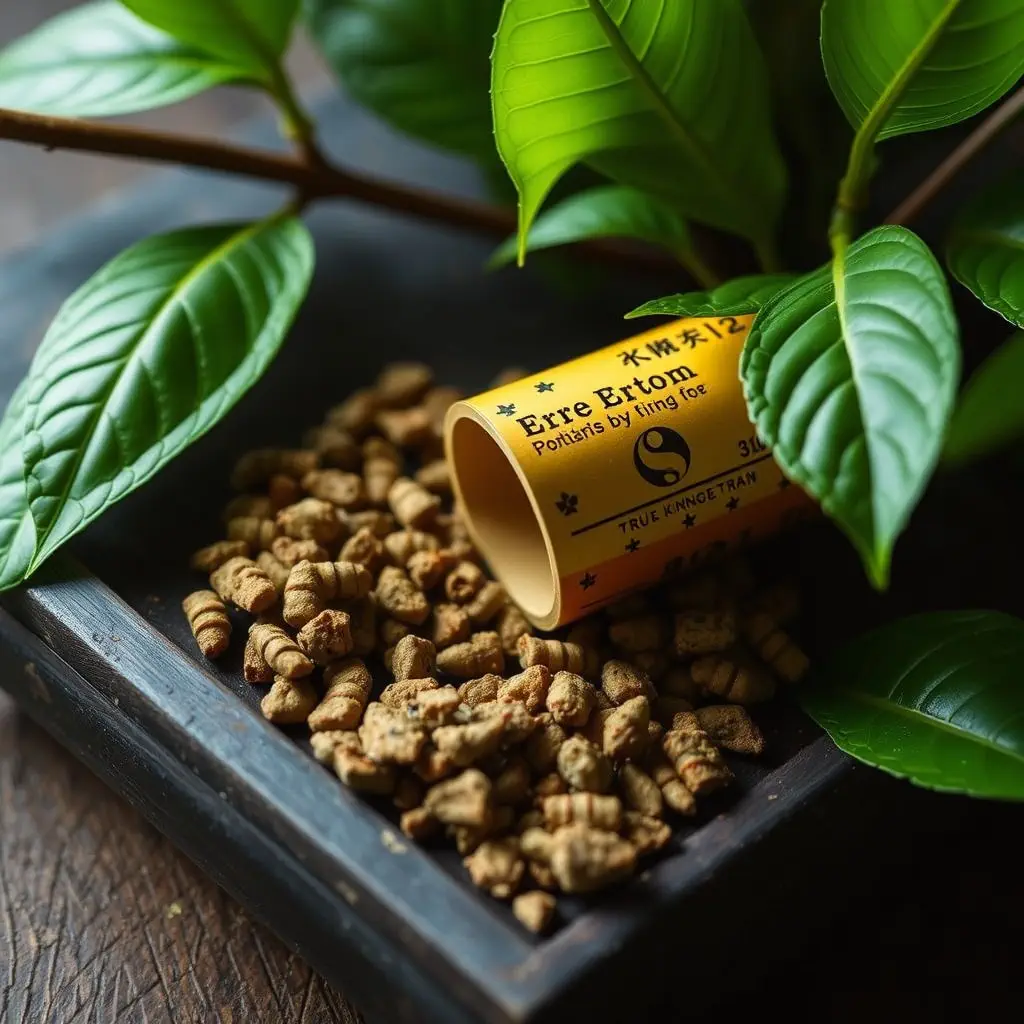Inflammation is a natural immune response that involves redness, heat, swelling, and pain, primarily triggered by injury or infection. While acute inflammation promotes healing, chronic inflammation can contribute to the progression of various diseases like arthritis, heart disease, diabetes, cancer, and other inflammatory conditions. The Lotus Blue Flower kratom strain has been recognized for its potential anti-inflammatory properties due to its unique alkaloid profile, including 7-hydroxymitragynine and mitraphylline. These compounds may help modulate immune responses and inhibit pro-inflammatory cytokines, offering a natural alternative for managing inflammation. Traditional use in herbal medicine supports these effects, with users noting relief from various inflammatory conditions. However, it is crucial to consult healthcare professionals before using Lotus Blue Flower as part of a health regimen due to its complex interactions with other substances and individual health statuses. A holistic approach that includes dietary changes rich in antioxidants and omega-3 fatty acids, along with exercise and stress management techniques, can enhance the anti-inflammatory effect of Lotus Blue Kratom. Safe usage at appropriate dosages is essential, with attention to potential interactions with other supplements or medications, especially for those with pre-existing health issues. The Lotus Blue Kratom flower can be an effective component within a comprehensive strategy for inflammation management when used responsibly and as part of an overall wellness plan.
Inflammation is a fundamental immune response, crucial for healing and protection against disease. Yet, when persistent and low-grade, it can contribute to numerous health issues, ranging from arthritis to chronic pain syndromes. Enter the lotus blue flower, traditionally revered in herbal lore, now emerging as a potential ally in the quest for inflammation reduction. This article delves into the biological underpinnings of inflammation, explores the role of kratom supplements, specifically Lotus Blue, and provides guidance on how to incorporate this natural remedy into your anti-inflammatory regimen for optimal health benefits. Uncover the potential of Lotus Blue Kratom and its anti-inflammatory properties in a balanced and informative discussion.
- Understanding Inflammation and Its Impact on Health
- The Role of Kratom Supplements in Inflammation Reduction: Insights from the Lotus Blue Flower
- Integrating Lotus Blue Kratom into Your Anti-Inflammatory Routine Safely and Effectively
Understanding Inflammation and Its Impact on Health

Inflammation is a complex biological response characterized by redness, heat, swelling, and pain, typically triggered by injury or infection. It is an integral part of the body’s immune system, serving as a defense mechanism to protect against harmful stimuli such as pathogens, irritants, and damaged cells. However, when inflammation persists or becomes chronic, it can contribute to a range of health issues, including arthritis, heart disease, diabetes, cancer, and other inflammatory conditions. The body’s regulation of inflammation is critical for maintaining overall health, as both acute and chronic inflammation play distinct roles in the healing process and the progression of diseases, respectively.
In the quest to modulate inflammation, natural supplements like kratom have gained attention due to their potential anti-inflammatory properties. Kratom, derived from the leaves of Mitragyna speciosa, has been traditionally used in Southeast Asia for its various health benefits. Among these benefits, the alkaloids present in kratom leaves, such as 7-hydroxymitragynine and mitragynine, are believed to exert anti-inflammatory effects that can help reduce inflammation-related pain and discomfort. The lotus blue flower, a variant of kratom known for its distinct appearance and potential efficacy, is one such strain that has been the subject of interest for its potential role in managing inflammatory responses within the body. Users interested in exploring this natural approach to health should consult healthcare professionals to ensure safe and effective use of kratom supplements as part of an overall wellness strategy.
The Role of Kratom Supplements in Inflammation Reduction: Insights from the Lotus Blue Flower

Kratom, derived from the leaves of the Mitragyna speciosa tree, has garnered attention in the realm of natural health supplements, particularly for its potential anti-inflammatory properties. The Lotus Blue Flower, a strain of kratom, is noted for its unique alkaloid composition that may contribute to its inflammation-reducing effects. Studies suggest that certain alkaloids present in the Lotus Blue Flower, such as 7-hydroxymitragynine and mitraphylline, exhibit anti-inflammatory activity by modulating immune responses and inhibiting pro-inflammatory cytokines. This action can be particularly beneficial for individuals experiencing chronic inflammation or those seeking to manage inflammatory conditions without the side effects often associated with conventional medications.
The potential of the Lotus Blue Flower in inflammation reduction is further supported by its traditional use in herbal medicine. Users report that this strain may offer a modulating influence on the body’s inflammatory response, which could be beneficial for a range of conditions, from arthritis to muscular soreness. However, it is crucial for individuals considering kratom supplementation to consult healthcare professionals, especially given the complex interplay between kratom and existing medications or health conditions. The research into the Lotus Blue Flower’s anti-inflammatory properties is ongoing, and while promising, it underscores the importance of a cautious and informed approach to its use.
Integrating Lotus Blue Kratom into Your Anti-Inflammatory Routine Safely and Effectively

Lotus Blue Kratom, derived from the Mitragyna speciosa plant, has garnered attention in natural health circles for its potential anti-inflammatory properties. When considering the integration of Lotus Blue Kratom into your daily routine to reduce inflammation, it’s crucial to approach this holistically, taking into account dietary habits, stress levels, and overall wellness practices. The alkaloids present in Lotus Blue Kratom leaves are believed to influence the body’s response to inflammation, making it a valuable addition to an anti-inflammatory regimen. To utilize Lotus Blue Kratom effectively, start with a low dose to assess your sensitivity, and gradually increase as needed, following the product’s guidelines or a healthcare provider’s advice. Pairing this supplement with a balanced diet rich in antioxidants and omega-3 fatty acids can further support your body’s natural anti-inflammatory mechanisms. Additionally, maintaining regular physical activity and managing stress are complementary strategies that can enhance the effects of Lotus Blue Kratom and promote overall health and vitality. Always prioritize safe usage by staying informed about the correct dosage, potential interactions with medications, and consulting with a healthcare professional before integrating Lotus Blue Kratom into your anti-inflammatory routine, especially if you have existing health conditions or are taking other supplements or medications.
Incorporating Lotus Blue kratom into your health regimen may offer a natural approach to inflammation reduction. The insights from the Lotus Blue Flower provide a compelling perspective on its potential anti-inflammatory benefits, as outlined in ‘Understanding Inflammation and Its Impact on Health’ and ‘The Role of Kratom Supplements in Inflammation Reduction: Insights from the Lotus Blue Flower.’ With careful consideration and adherence to safety guidelines as detailed in ‘Integrating Lotus Blue Kratom into Your Anti-Inflammatory Routine Safely and Effectively,’ individuals can explore this alternative therapy. It’s clear that further research is warranted, but the potential of Lotus Blue kratom as an anti-inflammatory agent cannot be overlooked. As a takeaway, those interested in natural supplements for health maintenance should consider the advantages and risks associated with Lotus Blue kratom, always consulting healthcare professionals before making any changes to their wellness routines.






